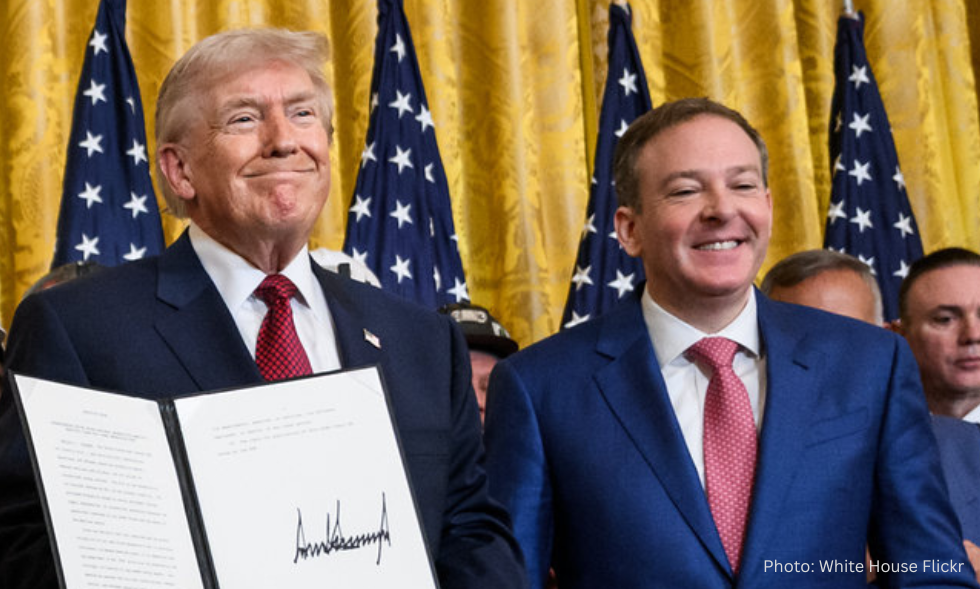‘Today is a win for car and truck buyers and Trump should be applauded for taking this action.’
SCHAUMBURG, IL (February 12, 2026) — President Trump’s Environmental Protection Agency today announced the repeal of an Obama-era rule called the “Endangerment Finding,” which categorized carbon dioxide (CO2) and other greenhouse gases as a threat to public health. This move cuts the legs out from under the EPA’s climate rules, which allowed the federal government to impose ever-increasing regulations on automobiles and appliances in an effort to reduce their “carbon footprints.”
The following statements from energy and environment experts at The Heartland Institute may be used for attribution. For more information or to schedule an interview, please contact Executive Vice President and Director of Communications Jim Lakely at [email protected] or call/text 312-731-9364.
The Heartland Institute is a national free market think tank that The Economist magazine called “the world’s most prominent think-tank promoting skepticism about man-made climate change.”
Heartland has organized 15 International Conferences on Climate Change and will host its 16th conference on April 8-9 in Washington, DC. Heartland also published the 3,000-page Climate Change Reconsidered series of volumes by the Nongovernmental International Panel on Climate Change.
“This action is long overdue and good for the American people, freeing up the auto industry to make the vehicles people want unburdened by unnecessary emission restrictions or money-losing electric vehicle mandates. Today is a win for car and truck buyers and Trump should be applauded for taking this action.
“The endangerment finding was never justified by either science or law. Now it’s time to strike another blow for affordability, and strike while the iron is hot, to rescind endangerment for power plants as well. Let’s hope the Administration is up to the task of defending this decision in court and take it all the way to the Supreme Court.
“For CO2 regulation to be put back in the hands of the legislature where it belongs, the Supreme Court must overturn the terrible majority ruling in Massachusetts v. EPA, which spawned the endangerment finding in the first place.”
H. Sterling Burnett
Director, Arthur B. Robinson Center for Climate and Environmental Policy
The Heartland Institute
[email protected]
“The repeal of the EPA’s 2009 Endangerment Finding is a huge step toward restoring climate reality for the United States.
“There’s temptation to say, in Star Trek parlance, ‘It’s dead. Jim.’ But, in reality, it is a Yogi Berra moment: ‘It ain’t over ’til it’s over.’ Today’s announcement is poised to trigger a sweeping political, legal, and media backlash.
“As the regulatory foundation for nearly two decades of federal climate policy, its reversal will ignite coordinated lawsuits, state-level countermeasures, and an intensified public relations campaign from activist groups and aligned institutions determined to preserve existing climate authorities. Look for courtroom battles, a surge in state-driven climate initiatives, and the likely escalation of extreme-weather attribution claims in the media.”
Anthony Watts
Senior Fellow
The Heartland Institute
[email protected]
“This is a great first step towards rolling back all the horribly damaging overregulation that has suffocated American innovation in the last few decades. Rescinding the vehicle emissions related endangerment finding is a necessary and fantastic start, it’s now time to press the advantage.
“Undo the damage done by the 2007 Massachusetts v. EPA ruling, remove the powerplant greenhouse gas emissions rules, and make it so that only real legislation passed by Congress would ever put any of it back in place.”
Linnea Lueken
Research Fellow
The Heartland Institute
[email protected]








